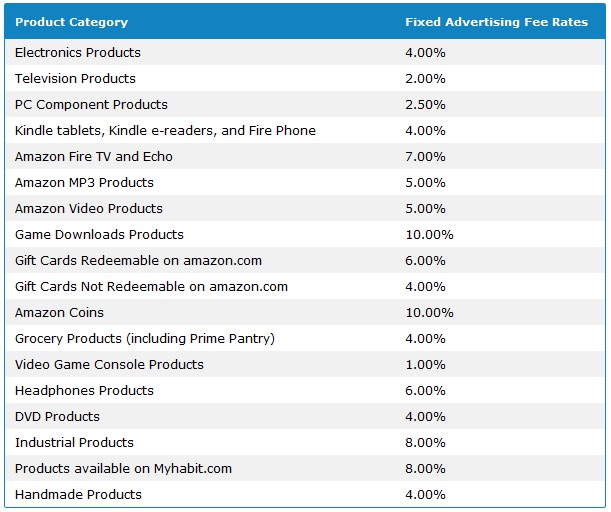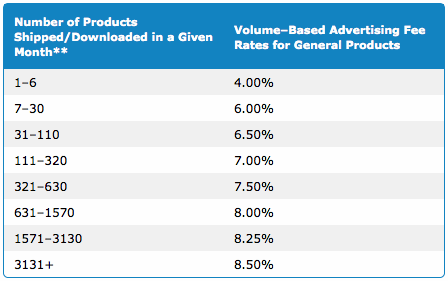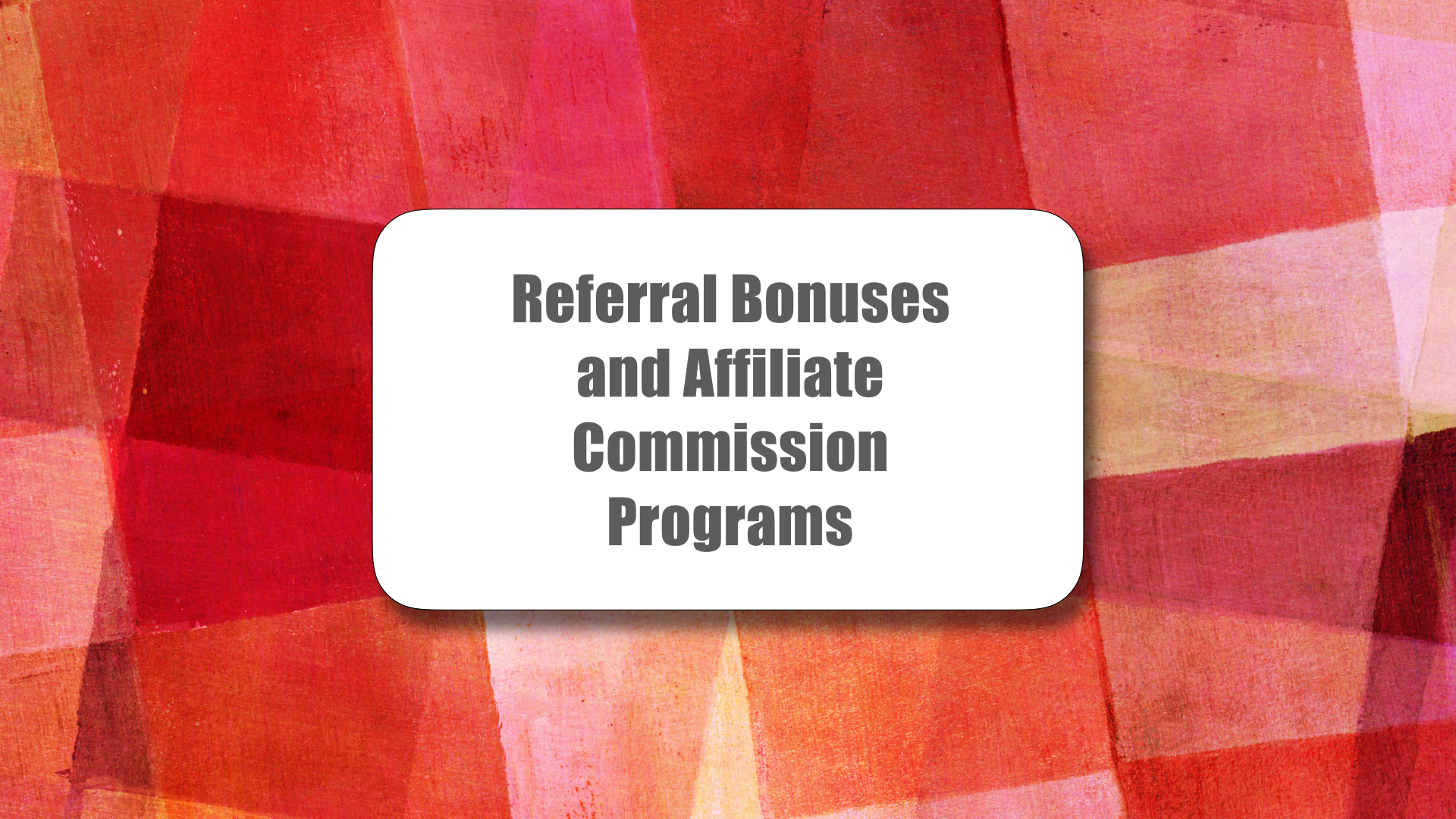Most companies have a mechanism in place to reward customers for referrals. The reward may come as a discount on future purchases, or a credit to your account. You’ve probably seen the “tell a friend” programs that give you and your friend a reward when they sign-up. In some cases, there may be a cash payment directly deposited into an account for referrals.
- “Referral bonuses” is the term sometimes used to describe customer rewards programs. While usually something offered to customers, non-customers may be able to participate. The reward is usually an in-store credit for future purchases, but could be cash.
- “Affiliate commissions” is a term typically used to describe a program that anyone, even without being a customer, can join. The payout is usually cash. You get paid as you refer people and they make purchases.
Some businesses offer both of the above incentive programs.
Analytics Benefits
Having ads on your site give you an extra insight into your website visitors, their interests, and their level of engagement in your site. So, this can be an additional advantage of having ads on your site.
In-House or Third-Party Affiliate Systems
With regard to affiliate systems, some companies have their own in-house mechanism for tracking sales and paying out rewards. Amazon and eBay are examples of this. Having your own in-house rewards programs could save money and may offer flexibility and control.
For smaller businesses, third-party services are available for tracking and paying commissions, such as:
If you open an account with Commission Junction (at cj.com), for example, you’ll see the thousands of companies from around the world that advertise using their service.
Companies may advertise through multiple services to reach as many website owners as possible, since site owners may only work with a single affiliate service.
Advertisers and Publishers
Commission Junction has two kinds of users: Advertisers and Publishers. The advertisers are organizations or businesses wanting to advertise what they offer. Publishers can be anyone wanting to make affiliate revenue by advertising on their website or through email campaigns.
As a publisher, you need not necessarily have a website to earn commissions. You could simply use short website addresses to promote a certain ad program. Put that short code on a flyer or business card, and when people type it in, you make money (assuming the service you’ve signed up for supports links for revenue).
Some programs simply require that a new customer provide the name or referral number for the person who referred them. So, even with a phone-in order, the referring person still gets credit.
How Payments are Calculated
These affiliate programs usually pay for ‘clicks’ and sometimes pay based on whether or not something was purchased and if so, how much was purchased. There may be a flat payout, or a percentage of the resulting sale.
Amazon Referral Commissions
Amazon pays sales commissions as a percentage of the sale. Their payout schedule is below as an example of what you might expect from other similar affiliate programs. It’s important to read the complete Amazon Associates advertising fee schedule to understand the full program.

Amazon also has an incentive, shown below, for those who make more sales.

Drawbacks to Affiliate and Referral Programs
There are some drawbacks to affiliate and referral programs. Here are a few:
- Cookies and Ad Blocking. Many people set their browser to not allow cookies (the system that tracks website activity), and they may even use software to block ads. This results in affiliate programs not working. So, you may be working hard and generating thousands of sales for companies, but not get paid for those because the customers turn off cookies.
- Dishonest Advertisers. Some advertisers will offer you affiliate referral commissions on sales. When you inquire about the details of their program, they may have loopholes, such as the advertising cookies may expire in 24 hours. In other words, if someone sees an ad on your website, clicks on the ad, but doesn’t buy something until two-days later, you won’t get commission for the sale. This is a way for the advertiser to get around paying people the commissions they deserve.
- Expired Ads. If you have a huge website, with many ads, you’ll soon start receiving lots of notifications indicating that certain ad campaigns have expired. This could be because the merchant has switched to advertising through another affiliate system, or because it was a short-term sale. You’ll need to remove those ads and provide current ones.
- Losing Return Site Visitors. People typically don’t like the flood of advertising that’s taking over the internet. If a site has too many ads, or ads people don’t like, they might not return. They will go to another site with less advertising or no advertising. Some advertising, like Google Adsense ads, may contain misleading or offensive content. There are way to manage this, but it’s time consuming.
- Managing Ads. As mentioned above, ads expire, and need to be managed. A significant amount of time can be spent finding new ads, removing old ads, discovering new merchants, applying to be an ad for a specific merchant, and keeping ads fresh to promote seasonal and short-term special sales (which tend to be very effective). So, it’s not always the case that you can just put an ad on your site and sit back as the money rolls in.
- Privacy Issues. Website are required to disclose their use of cookies and privacy policies. Once advertising is included on a site, it’s hard to control how those advertisers use the cookies and tracking information they obtain from your site visitors. Many people use antivirus software that also alerts them to websites that are invading their privacy. Your site may get flagged as suspicious or simply excessively intrusive if there are lots of ads and hidden tracking mechanisms.
- Hijacked Sales. Let’s say a person discovers a great product through your referral or advertising efforts. Then the next day, they see that product advertised again on Facebook or MSN or some other site. If they click this new ad, when they get redirected the sale revenue will go to someone else rather than you. Everywhere your site visitor goes, they will continue to be presented with the ad they originally saw on your website. This is because their browser activity is tracked and used to present relevant ads on other sites.
- Hijacked Site Visitors. If you use Google AdSense ads, when a visitor to your site clicks on one of them, they will be taken away from your site, and sent to the advertisers site (rather than having a new tab or window opened). As a result, it’s likely you could lose that site visitor by the distraction of the advertisement redirection.
- Slow Site Loading. Some advertising links are a fairly complex list of HTML code. For ads with audio, video, animation, or interaction, these require even more HTML code or scripts. This can slow down your site page load time and result in people going elsewhere.
A Better Approach
A better approach to advertising is to use simple links. If you want, have ads as photos hosted on your own website, and clicks on those ads open in a new window using a link provided by an affiliate program. This avoids just about all of the pitfalls mentioned above.
A similar option is to work directly with advertisers. For example, a company advertising on your website can pay you directly each month for ads that you put on your site. These ads don’t necessarily need any special tracking.
Those who advertise on your website or elsewhere can track their own website statistics and determine where inbound site visitors are coming from. In other words, if your site is sending traffic to another site, they will see that traffic coming in and can measure the impact it is having. Specific sales can’t be tracked, but overall impact can be measured.
If a site is given inbound traffic that’s presumably pre-qualified by their interest in clicking the link, the site they land on is essentially responsible for their own success. If they do a good job of selling their organization, business, product, or service, then people will join or buy. If they don’t do a good job, people will look elsewhere.
Those who help drive traffic to a site should be paid accordingly. From the advertising business owner’s perspective, they don’t want to pay for ads that don’t actually generate revenue, so this is why payouts based on actual sales are popular. Yet, for the reasons described above, these mechanisms often fail and people don’t get paid properly.
